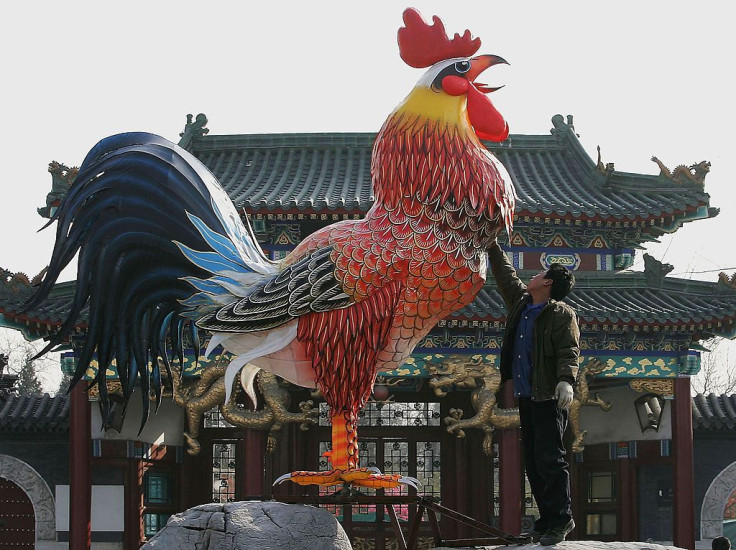
In traditional Chinese culture, the rooster's most symbolic meaning is punctuality and honesty. In ancient times, people could hear roosters crowing every dawn; there was no tool like an alarm clock to help you wake up in the morning.
The second thing roosters symbolize is bravery and competitiveness. Fighting is in the rooster's blood, that's why it is very common to see two roosters fighting each other. Many people in Asia learn bravery and competitiveness from the roosters' heroic struggles.
Roosters are said to symbolize ghost hunters. Ghosts can only appear at night, but the rooster's crow means the day is coming. Older people teach children to imitate a rooster's crow; if they ever encounter a ghost, they should crow like a rooster to scare the ghost away.
The rooster symbolizes the Sun God. Ancient Chinese people believed that roosters had a kind of divine power; they thought roosters represented the sun since they crowed every day when the sun rose.
The fifth thing roosters symbolize is luck. They are beautiful, with red comb, colorful feathers and golden tail. So at first people called them ji, in Chinese pronunciation is similar to "luck." It's believed that before it was domesticated by people, this animal would bring people luck like the phoenix.
Roosters are the most common poultry and meat in China, for this reason represents the ordinary.
Finally, in Chinese culture, roosters suggest prosperity because they reproduce very fast. Represent prosperity in terms of both population and wealth.
© 2025 Latin Times. All rights reserved. Do not reproduce without permission.




